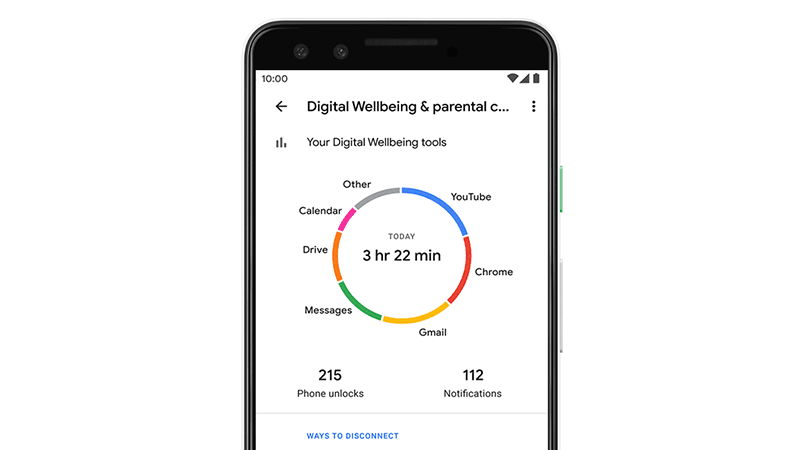.gif)
The ongoing pandemic has taken a toll on our mental and digital well-being. So, during Google's Digital Wellbeing Day, the search giant came up with 11 tips to help improve it.
 |
| Google Digital Wel-being tips |
11 ways of improving your mental and digital well-being
 |
| Google Digital Well-being Dashboard |
1. Write in a journal - Having an outlet is key when you feel overburdened. One such outlet is a journal. Take it a step further and use an actual journal and pen. This will help your mind slow down and follow the pace of your writing hand. This also provides an opportunity for positive self-talk and identifying negative thoughts and behaviors. Identifying stressors will help you work on a plan to resolve problems.
2. 25 on, 5 off - For working professionals, you can practice working 25 minutes straight then take a 5-minute break in between throughout the day. Do this four to five times then take a longer break for 15 minutes. By repeating this process throughout the day, you can be productive and less stressed at the same time on a busy day.
3. Deep breathing - When you are feeling anxious or overwhelmed, try stepping back and practice the 4-7-8 breathing technique. This involves breathing in for 4 seconds, holding your breath for 7 seconds, and exhaling for 8 seconds through the mouth.
4. Doing nothing is everything - Higher levels of stress come from being constantly busy. There is value in spending time in silence, nature, and not engaging in constant external stimulation. We need time doing ‘nothing’ to be our best selves. This means disconnecting from gadgets, media, and work for a few minutes or an hour.
5. Choose healthier arguments - Arguments are part of life. However, there are toxic arguments and healthy arguments. Choose the latter, Healthy arguments mean using "I" rather than "You". You should also avoid calling each other names. Focus on the issue at hand, offer a solution, check your voice and tone, and most importantly, listen and take turns.
6. Bit-sized goals - When there are many things that demand your attention, it is key that you know when to take a step back and list down priorities. Big tasks can be broken down into small ones while setting realistic deadlines. Making small yet progressive strides is efficient and can give a sense of accomplishment which is important in reducing stress levels.
7. Find a balance with technology - There are Google Digital Wellbeing tools available to help you be more aware of your digital habits. For one, its Dashboard feature gives a daily view of how often you check your phone and how frequently you use different apps. It allows you to set limits with daily app timers which pause apps or websites for the day when the timer runs out.
8. Minimize the number of times you pick your phone up - Your smartphone can serve as both a productive tool and a distraction. You should limit the number of times you pick up your phone. Google Assistant can help you do simple tasks without picking your phone up.
9. Focus when needed - Through the Digital Wellbeing's Focus Mode, you can see which
apps distract you the most and choose which ones you want to pause or take a break from. Once set, your distracting apps will be inaccessible until the timer goes off.
10. Create a sleep schedule and stick with it - Digital Wellbeing's Bedtime mode can help you set a bedtime schedule that will automatically turn on the Do Not Disturb feature so that notifications cannot disturb your rest. It also fades your screen to grayscale to prevent bright colors and light stimulating your brain when you need to shut down.
11. Get help when you need it - Admitting that you need help is the first step towards a better tomorrow and healthier mental well-being. Google Search now instantly shows the National
Center for Mental Health Crisis Hotline (0966-351-4518) when a person types in related keywords to remind and prompt people to seek professional help during their vulnerable state.
You can check Google's Digital Wellbeing Tools and programs here.
What do you guys think?

.gif)

.gif)



Post a Comment